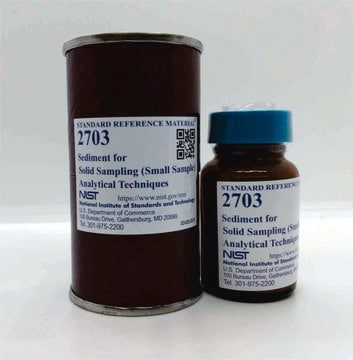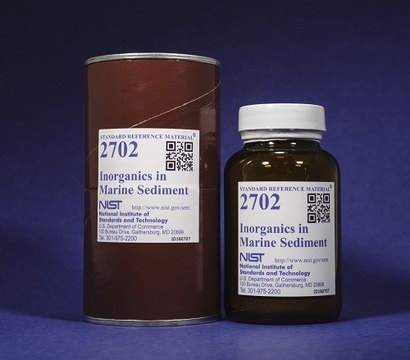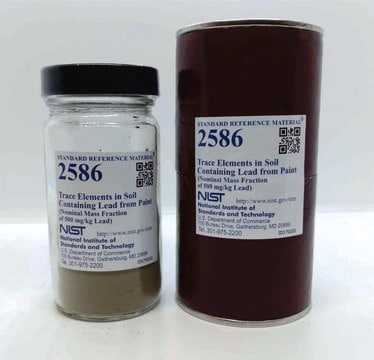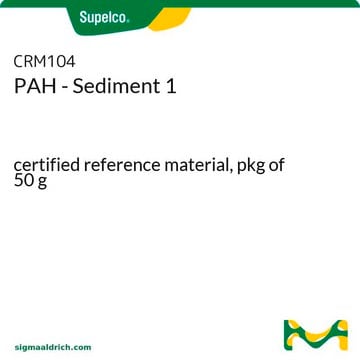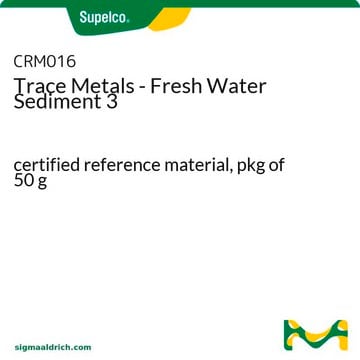BCR701
Sediment (extractable elements)
BCR®, certified reference material
About This Item
Recommended Products
grade
certified reference material
Agency
BCR®
manufacturer/tradename
JRC
application(s)
environmental
format
matrix material
storage temp.
2-8°C
Related Categories
Application
Analysis Note
BCR701
Legal Information
Storage Class Code
13 - Non Combustible Solids
WGK
WGK 3
Flash Point(F)
Not applicable
Flash Point(C)
Not applicable
Choose from one of the most recent versions:
Certificates of Analysis (COA)
Sorry, we don't have COAs for this product available online at this time.
If you need assistance, please contact Customer Support.
Already Own This Product?
Find documentation for the products that you have recently purchased in the Document Library.
Customers Also Viewed
Our team of scientists has experience in all areas of research including Life Science, Material Science, Chemical Synthesis, Chromatography, Analytical and many others.
Contact Technical Service
